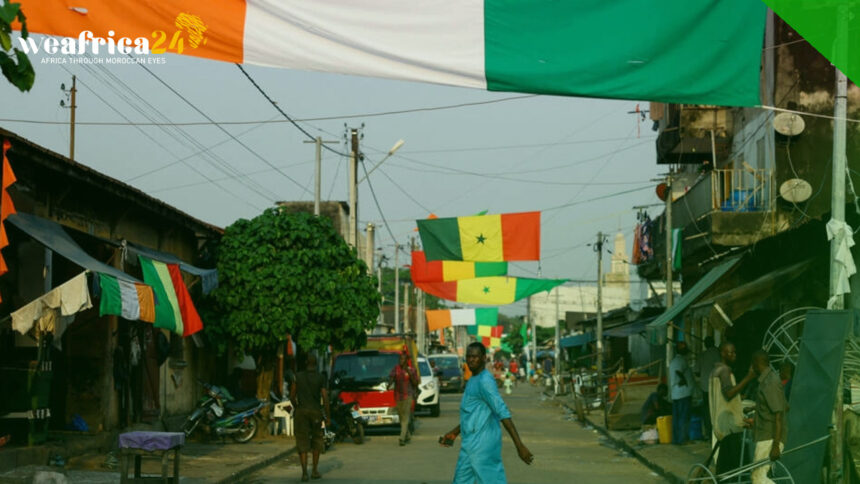The conclusion of the 34th Africa Cup of Nations prompts reflection on its economic impact, particularly for small-scale traders. In Abidjan, where authorities anticipated hosting nearly a million visitors, the post-tournament assessment among economic stakeholders reveals a mixed picture.
At Akouédo grounds, a group of young individuals dismantle tents and pack up chairs. Here, a fan zone equipped with two large screens was established during the tournament by a supporters’ association, albeit without sponsorship. Among these entrepreneurs, Landry Yobé recounts operating at a loss: “In less than a month, our daily expenses amounted to 850,000 francs: sound systems, stages, screens… It’s been a challenging venture for us.”
Numerous restaurant terraces and local bars still proudly display the Ivorian flag—a testament to the lively evenings filled with beer-drinking clientele. Yann Éric, manager of a local bar, attests to doubling, if not tripling, his revenue during each national team match. “During the Ivorian matches, we had to ensure ample stock because by 1 p.m., customers were already arriving. For instance, during the Mali-Ivory Coast match, we sold up to 500 bottles,” he recalls with amazement.
Meanwhile, at Palmeraie market, Assane Boubacar sells an array of football jerseys—from Mali, Nigeria, to Ivory Coast—all of which saw brisk sales. “Honestly, I didn’t keep track. On certain days, we could make between 60,000 and 90,000 CFA francs,” he states.
For Boubacar, business continues to thrive as customers now seek the coveted orange Elephants jersey, following the team’s third-place victory in the final match on Sunday.







